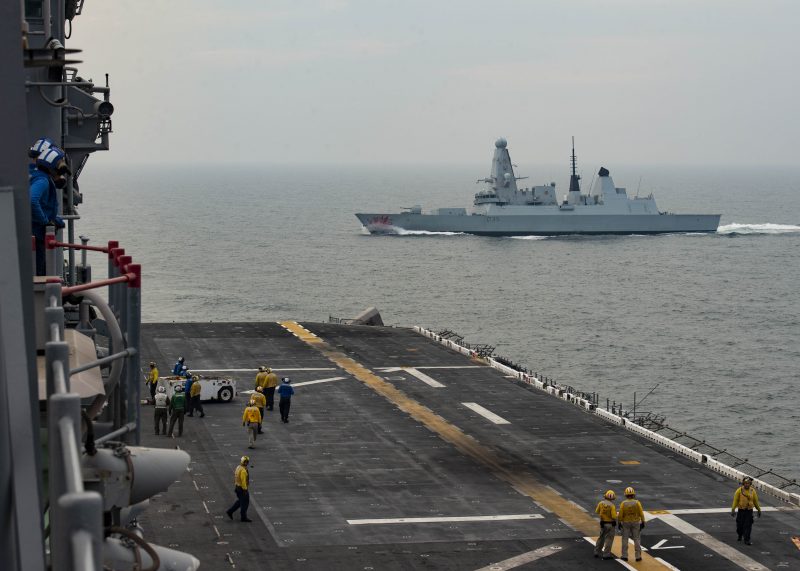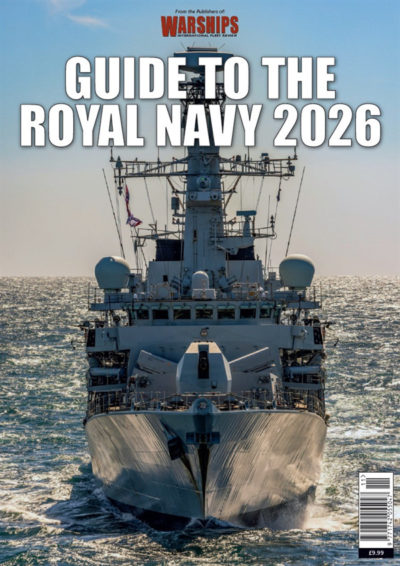Conservatives

The Conservatives stress that it is vital for Britain to ‘stand up and be counted’ in an unstable world afflicted with threats from ‘terrorism, rogue states, and malign non-state actors.’ According to them achieving Brexit will enable Britain to do ‘more on the international stage’, and it will continue to champion ‘collective security, the rule of law, human rights, free trade’, and a ‘rules based international system.’ The Tories vow in their manifesto to ‘stand up to foreign countries that threaten the stability of Europe, or commit state sanctioned murder on British soil.’
Alongside expanding Britain’s diplomatic reach, and supporting ‘international initiatives to achieve reconciliation, stability, and justice across the world’, post-Brexit a Tory government would seek to bolster alliances and institutions that help Britain project influence and keep it safe – such as the UN, UN Security Council, NATO, Commonwealth, Five Eyes, G20, G7, and World Trade Organisation, with firm support for free trade and global growth. This suggests that the trend towards globally deploying the Royal Navy will continue. There is also a pledge to ensure the protection and democratic rights of Britain’s Overseas Territories, such as the Falklands and Gibraltar.
Though previous Conservative governments have been accused of artificially inflating defence spending figures, to imply two percent of GDP is spent on actual military capabilities, the Tories pledge an increase of at least 0.5 per cent above inflation per year of the new parliament.
This funding increase will likely be used to modernise equipment and improve the capabilities of the military and intelligence agencies, with new investments also made in military training and equipment. Consequently, there is also a pledge to support the defence industry through investments in key programmes, with Type 31 frigates specifically mentioned. These are, according to the Conservative manifesto, to be built in ‘shipyards such as Rosyth’.
A surprising inclusion is a proposal to establish a ‘Space Command’, the details for which are presently unknown. If it is anything like its US counterpart then it will have implications for the military as a whole, as well as the nuclear deterrent (which gets a brief mention via promising to maintain it).
Odin observes:
The Tories like to think of themselves as ‘the party of defence’ but the disastrous 2010 Strategic Defence and Security Review (SDSR) blew a hole in that contention by inflicting damage on the UK Armed Forces that they have not recovered from. Aside from giving thousands of sailors and Royal Marines their marching orders – leaving the fleet short of personnel for its new carriers and seeing people transferred from other vessels, so rendering them unable to deploy – frigate and destroyer numbers are at an all-time low, while there have been serious problems with submarine availability.
At a time when other nations are expanding their amphibious forces, rumours persist that the Landing Platform Docks (LPDs) Albion and Bulwark may yet be axed to free up more people for the carriers. British warships remain under-armed and spread too thin around the world and while the RN strains heroically to carry out all its tasks, too much is being asked of too few ships and people.
There are doubts the RN would last long in a fight with a peer enemy (even as part of a coalition force). Yet the RN has ambitions to exert a meaningful presence in the North Atlantic and also in the Middle East and Asia-Pacific. Allied navies wonder how this will be done while potential foes are more than happy to see the RN layer overreach on top of overstretch. All this has happened under the Conservatives. Boris Johnson’s approach of doing the minimum to maintain the defence of the realm is very much in line with his ineffective predecessor, who showed little interest in the Navy. Having said that, even a commitment to increase defence spending by 0.5 per cent per annum is welcome, but this is still likely dependent on the state of the economy, which is uncertain and may suffer due to Brexit. Also, such a small rise is likely only to enable the MoD to keep pace, rather than lead to any true up lift in force levels and further expansion in capabilities.
The fact that a NATO summit is due to be held in the UK in the first week of December, might explain why the Conservatives were so light on solid Defence proposals in their manifesto. They are clearly intending to use the summit to emphasise their commitment to ‘Security’, their catch-all label for defending the nation and its interests. They can be expected to project a more assertive stance on the military and the capabilities it offers to the Alliance during presentations at the summit.
To that end, ahead of it, Boris Johnson revealed he will take personal control of an ‘integrated defence, security and foreign policy’ review in 2020. While on the surface, this sounds just the medicine, something similar was promised by the Conservatives and Lib Dems in 2010 and the end result severely undermined the Armed Forces. That ill-conceived SDSR emphasised non-military ‘Security’ elements at the very moment when more hard military power was needed (and still is).
That the Conservatives’ special focus now is on so-called ‘Space Command’ is a bit worrying, bearing in mind the major players militarily and economically – both the UK’s friends and would-be foes – are, in reality, leaning towards (and cracking on with) massive boosts to maritime power. A commitment to restore frigate and destroyer numbers to at least 25 by 2025 would have been impressive, though, at current sluggish rates of new warship construction, that is impossible. Vowing to sort out the troubled Astute Class submarine programme and fix the problems with the HMS Vanguard refit at Devonport Dockyard might have won some people over to thinking the Tories are serious about naval defence.
Offering to introduce Co-operative Engagement Capability (CEC), in order to make the most of the Navy’s combat potential, would have been exciting. The US Navy (USN), Indian Navy (IN) and Japan Maritime Self-Defense Force (JMSDF) have CEC, while the French have developed their own variant. In fact, CEC is essential for warships to fight and survive in any future war. Yet Britain’s programme for introducing CEC was cancelled by Labour in the early 2000s amid a series of defence cuts. Instead, we now get Space Command, the latest panacea for Defence and Security ills that sounds super, but risks being rather specious. It will be of limited use in the areas where the really serious (and growing) threats to the UK lie, namely its many vulnerabilities on, under and over the sea. Inner space should be the focus, not outer space.
When it comes to future warfare, the RN should be well placed to join the leading navies in projecting drones into potential combat zones – enabling the new strike carriers to remain further away from threats such as hypersonic and ballistic missiles. The F-35B fighters are designed to control a group of drones, if only the Cameron-led government had not reversed its own 2010 SDSR decision to give the carriers ‘cats and traps’ necessary for launching such Unmanned Combat Air Vehicles (UCAVs). Having highlighted some of these failings in maritime security by the Tories, it’s worth pointing out there is no confidence that Labour under Jeremy Corbyn and his hard left lieutenants will ever introduce CEC or fit the carriers with cats and traps. Nor can they be expected to care too much about the Astute programme, so what has Labour’s manifesto actually said about Defence?

Labour

Of the main parties, Labour outlines perhaps the most comprehensive plans for defence and foreign policy. It shows that it is keenly aware of the trust deficit it suffers from on Defence under Jeremy Corbyn. Democratisation, strident multilateralism, peace-building, enhanced diplomacy, and more effective conflict resolution are at the heart of Labour’s foreign policy and security commitments. It intends using Britain’s ‘global influence to end the so-called ‘bomb first, talk later’ approach to security.’ Labour clearly intends to be less involved militarily overseas. It castigates the Tories’ for what Labour calls a ‘reckless approach to complex global challenges.’ It slams what it labels ‘outsourcing of UK foreign policy to US President Donald Trump.’ It also criticises interventions such as that in Libya. Consequently, Labour promises to stop future leaders bypassing parliament to authorise use of conventional force.
In seeking to ‘confront’ so-called past and present injustices the former inhabitants (and descendants) of the now British Indian Ocean Territory are to be allowed to return ‘home’. Britain on November 22 ignored a (non-binding) UN deadline to return the islands to Mauritius (though they were never owned by Mauritius in the first place). Labour suggests Britain’s position is unsustainable in light of UK foreign policy aims. It would hand the territory over to Mauritius. This would therefore include the island of Diego Garcia where there is a massive American military hub, including a naval support facility and airbase. Mauritius has stated it will continue to lease the necessary territory on Diego Garcia to the US.
Perhaps to assuage fears of a domino effect regarding Overseas Territories, the Labour manifesto stresses a government’s ‘duty to stand up for the security and sovereignty of [Britain’s] overseas territories, including the Falklands’ and that security is the first priority of the state. This will be ‘strategic and evidence-led’ in recognition that domestic security is strengthened by guaranteeing international security. Consequently, assessment of security challenges facing Britain ‘including new forms of hybrid, cyber, and remote warfare’ will be made in a Strategic Defence and Security Review (SDSR).
According to the manifesto ‘climate emergency, and associated threats of resource competition, involuntary migration and violent conflict’ will be considered as part of this. Multilateralism is reinforced with a pledge to increase UN peacekeeping operations funding to £100 million, maintain Britain’s commitment to NATO and European partners, and use British influence in the UN to ‘support peace and security worldwide.’
Despite Labour leader Jeremy Corbyn being a dedicated opponent of Trident in the past, there is a clear commitment to the nuclear deterrent. There is also a pledge to ‘actively lead’ multilateral efforts towards nuclear disarmament. Whether a Continuous at-sea Deterrent (CASD) would be maintained is uncertain. A pledge to spend ‘at least’ two per cent of GDP on defence ‘to guarantee British forces are versatile and capable of fulfilling the full range of roles and obligations’, is offered.

As expected, given the major influence of trades unions in the Labour party, there is strong commitment to the defence industry through commitment to work with ‘manufacturers, unions and export partners’ in line with Labour’s foreign policy to support innovation and skills.
There is also a commitment to procurement that supports defence manufacturing, with specific mention made of shipbuilding, the supply chain/component manufacturers, and the steel industry. Shipbuilding appears to be a key aspect of Labour’s commitment to the defence industry through a pledge to publish a Defence Industrial Strategy White Paper (including a National Shipbuilding Strategy restricting all navy and RFA shipbuilding contracts to British shipyards). The manifesto says this will ensure the ‘long term future of the industry and its workers.’ There is also a commitment to publish a strategy to ‘accelerate the safe and sustainable recycling’ of decommissioned submarines (most of which have languished in Rosyth and Devonport for decades after being retired).
Odin observes:
The strong commitment to multilateralism, stabilisation and peace building, means the Navy may be one of the primary means of enacting Labour’s foreign policy. What this indicates in terms of raising force levels and shipbuilding to match, would depend on the results of any SDSR and therein lies the rub. Nobody would have guessed that the coalition government led by Conservative P.M. David Cameron would ditch the entire UK Maritime Patrol Aircraft (MPA) force and get rid of the Harriers and their aircraft carriers, slashing frigate numbers too, while inflicting other serious harm on the UK Armed Forces. What exactly a Corbyn government might do in an SDSR is equally to be feared. There again, no UK government since the 1980s has taken serious steps to reverse the Navy’s decline other than invest in a few big-ticket items.
Jeremy Corbyn has in the past said he would never use the nuclear deterrent so, on that basis, the moment he walks into No.10 it is defanged and pointless. This rather makes a nonsense of pledging to maintain it. Likewise, a politician of principle like Mr Corbyn, who has said he would not order bombing raids is unlikely to deploy the strike carriers in their intended role, ever. Bearing in mind his reluctance to condemn Russia for the Skripal nerve agent attack on British soil – and his refusal in a recent TV interview to confirm he would order Special Forces to use lethal force to destroy ISIL leaders – there have to be serious doubts over Corbyn’s ability to take the hard decisions when it comes to using military force. He seems indecisive and slow.
With President Trump in power, should Corbyn become P.M. the Anglo-American special relationship will undoubtedly be strained to breaking point, while many on the hard left in Labour loathe NATO. The impact of discarding the Anglo-US alliance and any reducing of NATO commitments could potentially be severely counter-productive and detrimental to the UK. Empowering parliament to give final authorisation for war is also fine in theory, but failure to act can be as catastrophic as rushing in. Syria is a perfect example where the UK should have acted when the Assad regime used chemical weapons, but failed to do so. Many thousands of people have since died in a war that could have been halted then. Russia has taken full advantage of UK-US indecision to insert itself into a position of influence in the Middle East again.
Like the Tories, Labour does not promise to raise defence spending significantly. Force levels could fall even further. Its stewardship of the armed forces, once it unveils its full intentions via a SDSR, could also see a shattering of defence alliances that have stood the test of time and wars for decades.


Liberal Democrats

In their manifesto the Lib Dems suggest they would maintain strong commitment to multilateral organisations such as NATO and the UN, and what they call a ‘rules-based international order.’ They also pledge to use trade, aid, diplomacy, and military co-operation to prevent violent conflict, but accept ‘sometimes military intervention is necessary.’ The UK should only undertake this however, ‘when there is a clear legal and humanitarian case, endorsed by a vote in parliament – working through international institutions whenever possible.’
The Lib Dem manifesto stresses dialogue and mediation in partnership with the UN and other agencies to reduce conflict. This all generally reflects established liberal thought. Their manifesto commits the party to spending two per cent of GDP on Defence. It claims an improvement in the economy after stopping Brexit will deliver an extra £3 billion over the life of a parliament (five years), which will help fund Defence.
The Lib Dems recognise the threat of cyber warfare while they pledge to maintain ‘a minimum nuclear deterrent’. The manifesto says this would be done ‘while pursuing multilateral nuclear disarmament’ and while they would continue the ‘Dreadnought programme, the submarine-based replacement for Vanguard’ they would aim to build ‘three boats’ and move to ‘a medium-readiness responsive posture and maintaining the deterrent through measures such as unpredictable and irregular patrolling patterns.’
Odin observes:
While the Liberal Democrats castigate the Conservative record on Defence, they appear to have suffered severe amnesia. They were in coalition with the then Tory government when immense harm was done to the armed forces, particularly the Navy.
Their ideas on the deterrent have always been half-baked, including the fallacious proposition that it could be realistically replaced with nuclear-tipped cruise missiles, a move likely to increase the risk of nuclear war (as a foe will think you are potentially launching a nuclear attack every time you fire one). Also, using cruise missiles means a submarine has less room to hide in, must expose itself closer to a hostile shore. Cruise missiles are easily shot down and what would the world think if a nuclear-tipped one fell onto the territory of a friendly nation? This daft suggestion thankfully does not get a mention in the manifesto.
The fact remains that, if you are going to have a nuclear deterrent at sea, then you must do it properly or not do it at all. There is no in between choice. Yet, the Lib-Dems show their woolly-minded thinking on strategic defence again with their latest deterrent proposals. Procuring three instead of four Dreadnought ballistic missile subs, and adopting a ‘medium readiness responsive defence posture’ – allegedly maintaining the deterrent through measures such as ‘unpredictable and irregular patrolling patterns’ – won’t ensure even a minimum credible deterrent.
The Continuous At-sea Deterrent works because a potential enemy knows Britain’s nuclear arsenal is ready to respond at a moment’s notice. The location of British ballistic missile subs on deterrent patrol is unknown and so an enemy is made even more reluctant to risk a WMD attack. They are guaranteed to pay a very heavy price.
The Lib Dem posture would, however, ensure that for at least some of the time, an enemy would know exactly where all British ballistic missile submarines are. They would be plainly visible in port and vulnerable to a pre-emptive strike. Ordering three instead of four Dreadnought subs also runs the risk of leaving a gap in the deterrent capability due to unforeseen unavailability. Two submarines are insufficient to maintain a credible deterrent capability, let alone a minimum credible deterrent.
The Liberal Democrat stance on strategic defence is therefore likely to leave Britain more vulnerable. It poses the question: Are they too scared to cause massive job losses in Barrow and Devonport. By getting rid of the deterrent? Their only solution is to nibble away at the Dreadnought programme, making future CASD impossible. The prospect of submariners being told, as the threat of nuclear attack by an enemy escalates, to return to a SSBN and take the vessel out and potentially fire nuclear missiles – wiping out not only their own families but also much of the world’s population – is beyond grim. You might deter an attack if one of your SSBNs is somewhere out in the vast oceans all the time, but parking them at home virtually guarantees impotence.
The SSBNs would possibly only set sail under the Lib Dems when the situation had clearly gone beyond diplomacy and conventional deterrent, while the possibility of nuclear deterrence would have been squandered by the boat still being in port. Those submariners would be quite right if they refused to sail and abandon their loved ones in the middle of a crisis. Not only that, but the spies of a potential foe – who already keep an eye on SSBN comings and goings on the Clyde and have done so for decades – would tip off their HQ. Whichever unfriendly attack submarine lurked in the approaches to the Clyde, would stand a good chance of sinking the British SSBN as it emerged.
The Lib Dems would be far better off proposing to get rid of the deterrent force altogether while promising to divert money saved into expanding conventional forces, to deter enemies that way. But that would be too decisive for the Lib Dems who generally like to have their cake and eat it.







Comments
Sorry, comments are closed for this item